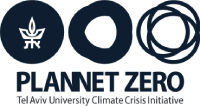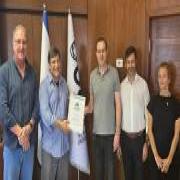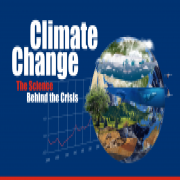"On Borrowed Time" Climate Crisis Lunch Sessions: employment and the climate crisis
The transition to a "green" economy might be desirable, but who might be harmed in the process?
In recent years, with the increasing awareness to the climate crisis and its causes, the need to transform the economy into a low-carbon economy and to promote green employment has become clearer. The transition to a low-carbon economy is expected to have large economic benefits in the medium and long term, but in the short term, can it harm workers in emissions-intensive industries. Therefore, the questions arise: How can this transition be maintained as fairly and justly as possible? Who should take part in the discourse? And what is green employment anyway?
"On Borrowed Time" meetings are held every month with the participations of scholars across Tel Aviv University, organization, government, industry and other sectors to discuss topics in focus that relate to the Climate Crisis.
At a "On Borrowed Time" meeting held on Sunday, May 21, 2023, a discussion was held with experts from labor organizations, the business arena and academia on the subject.
The meeting took place online. You can watch the recording of the meeting here (Hebrew)
Meital Peleg Mizrahi (TAU Climate Initiative) reviewed the definitions of green employment and its contribution to coping with the climate crisis. Meital discusses the significance of a just transition to a low-coal economy, and mechanisms that can keep workers in transition, such as just retraining and employee participation.
Amit Ben Tzur (Arlozorov Forum), presented a joint study with Ran Raviv of the Heschel Center NGO. The study describes expanding opening circles, beyond workers in industries whose jobs are at risk.
They found three circles of threats:
- Workplaces by sector (such as energy, chemicals, metals, also financial services)
- Threat to physical working conditions (infrastructure, railways, electricity, water, anyone working outside)
- Workloads, those who deal with victims of incidents and disruptions in the system: welfare, education, for example.
Amit Ben-Tzur reviewed examples from around the world and Israel presented in the study and defined the goal of a policy paper: ensuring a fair transition and also ensuring working conditions for those affected by climate change.
Rauma Schlesinger ("Workers Power" organization) spoke about the significance of the transition to a low-carbon economy in the context of employment struggles such as the impact of the closure of the ammonia tank at the Haifa Chemicals plant in 2017 on workers.
In the labor market, there is a shift from employment in large industries that have collective agreements and a long tradition of organizing workers to frameworks in which it is more difficult to unionize workers. This leads to a negative impact on workers' conditions and job stability. It is necessary to ensure the ability to unionize in all areas of employment, including in a "green industry" with fair wages and conditions that enable long-term employment stability.
One example is caregivers in kindergartens where they had to switch from using disposable dishes to reusable dishes at lunch. The caregivers objected because of the extra workload caused. Another example is the conditions of drivers on public transportation, which is required to strengthen and improve supply in order to transition from private vehicles to public transportation. The transition has costs and it often passes at points of struggle and crisis.
.
Alon Piltz (Dizengoff Center Mall CEO) spoke about Dizengoff Center's approach to sustainability and fair employment. Decisions and initiatives can achieve important changes. Food stalls in the shopping center on Thursdays donate about 500 meals a week and work to reduce food injections. It all connects to the vision of sustainability. But there is a lack of information in the area that is important for decision-making and which among different considerations.
Amiram Barsheshet, (TAU Department of Labor Studies), spoke about Israeli government policy, reduction targets, and a strategic plan for a low-carbon Israel. There is a lack of regard for the implications for the labor market. A question arises of the role of the Ministry of Environmental Protection when there are social and economic consequences. In fact, only the Prime Minister's Office can unite activities between government ministries from a holistic perspective.
Noam van der Hal presented the subject of just transition and agriculture in Israel.





